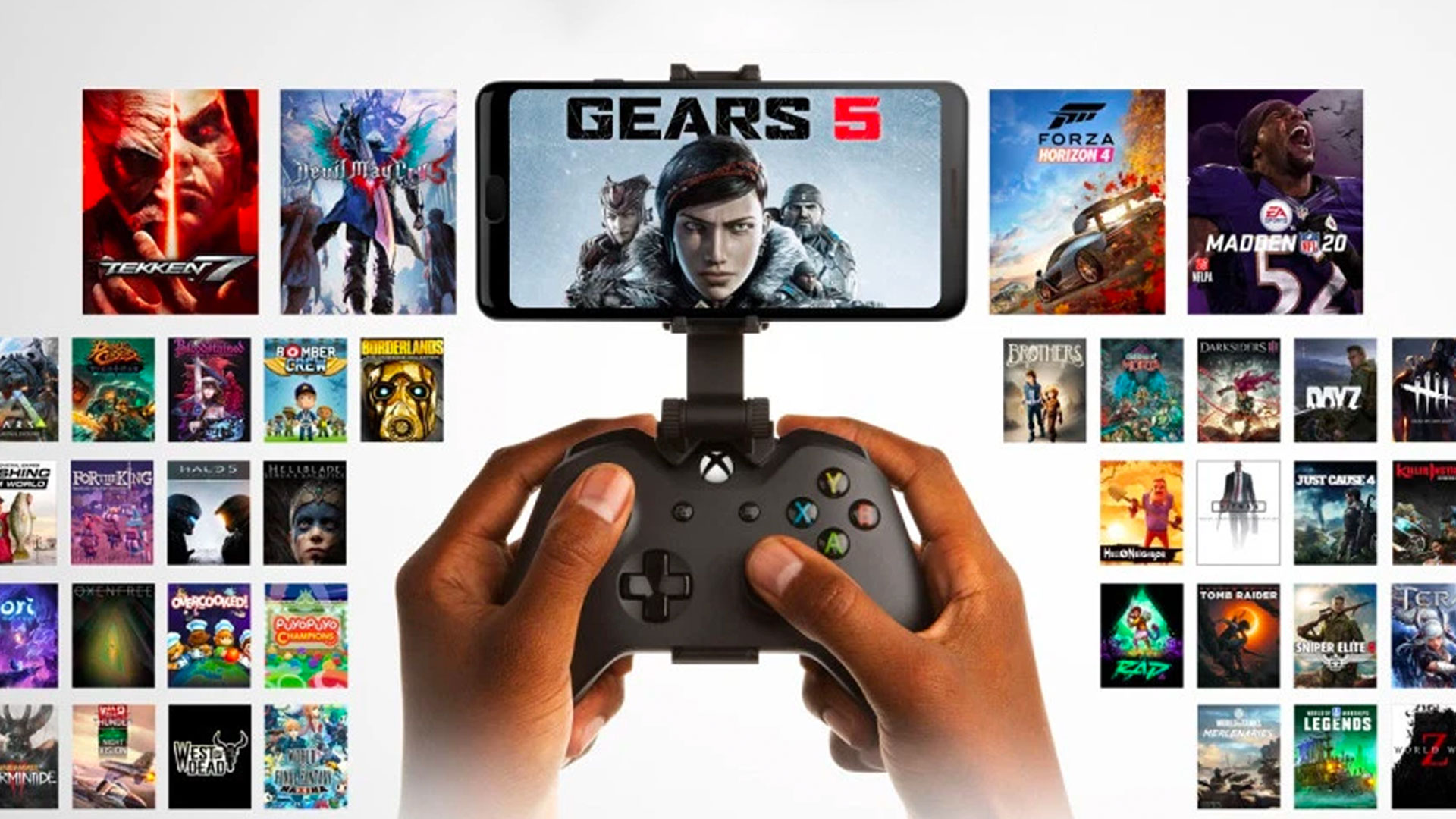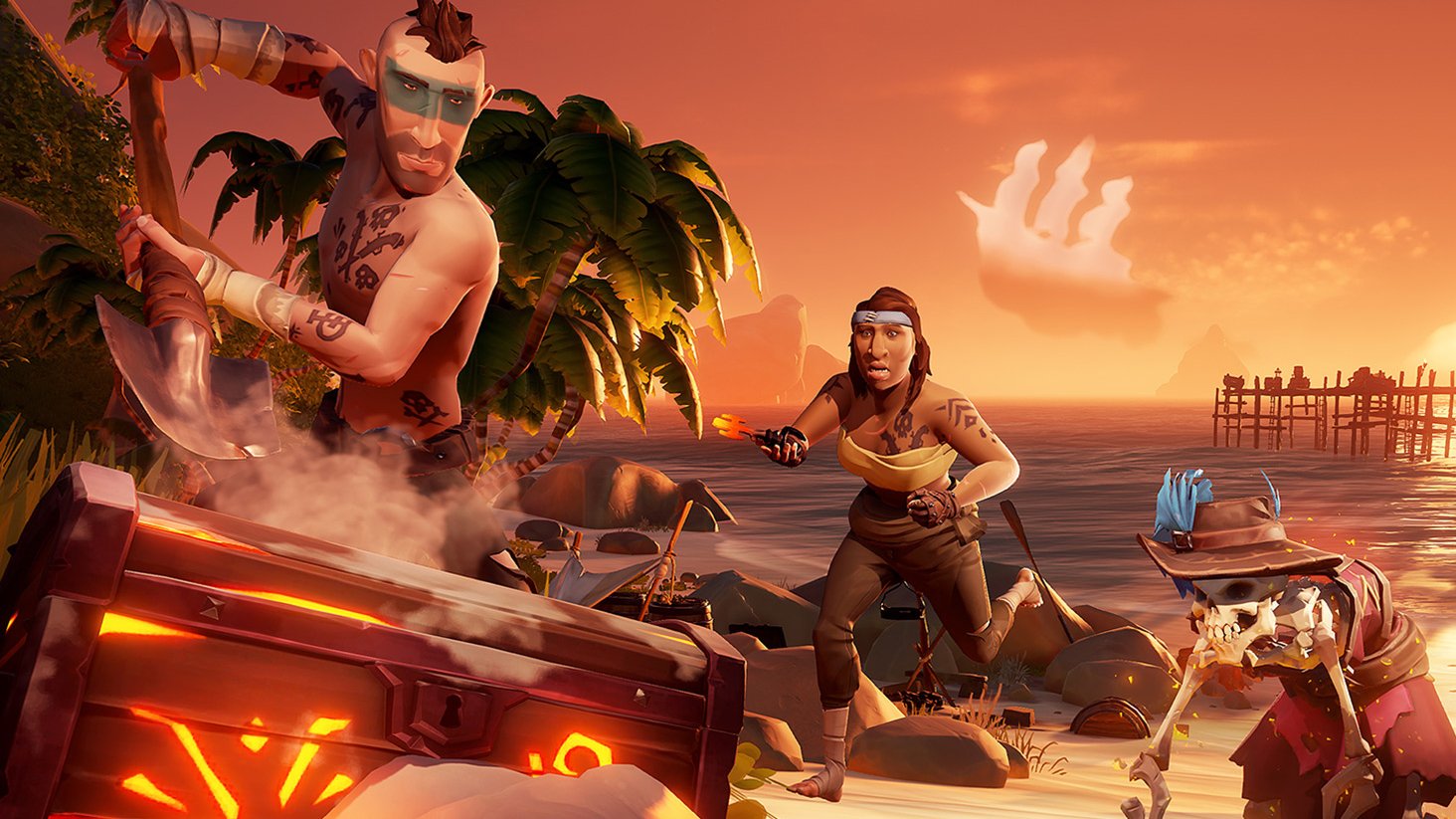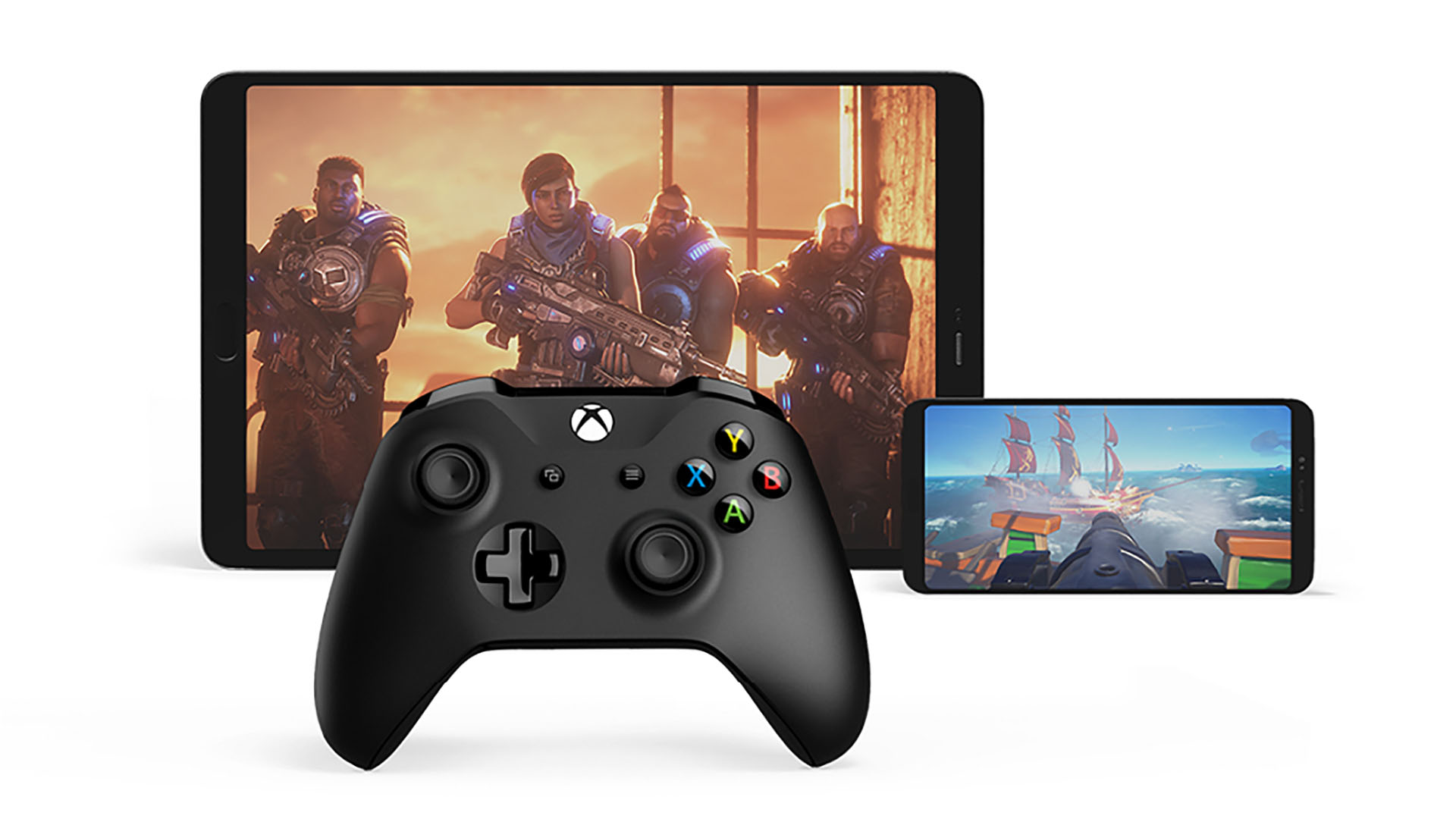Project xCloud has turned my phone into a portable Xbox, changing the way I play games
With Project xCloud, I've played more Xbox games on my phone than my console this year

Anyone who knows me can tell you how much I love Sea of Thieves. I gave it one of the internet's most favorable reviews at launch, it was my 2018 Game of the Year, and I've collectively poured somewhere around 500 hours into the game – conservative estimate. Lately, though, my beloved pirate sim has become something more than just a game I adore: with Project xCloud, it's quickly and unexpectedly become my favorite couch co-op game.
Sea of Thieves doesn't have couch co-op, of course. The shared world multiplayer sandbox only allows for one player per screen. When my wife fell hard for the game last November, it came at the perfect time. She had played with me before in the nearly two years since it launched, but the barrier of needing to go to separate rooms of the house to play together just wasn't appealing. We wanted to share a couch shoulder to shoulder, not disappear into other rooms and communicate via voice chat. In turn, it meant we hardly played Sea of Thieves together for many months despite her growing up a huge Rare fan and my continuing obsession with the game.
Then the future arrived. In November, I reviewed Google Stadia. Included with the review kit was a new smartphone on which I could play Stadia games. I liked Stadia more than some and I still play it pretty regularly too. But I must awkwardly admit that the Pixel phone the tech giant sent me has primarily become my handheld Xbox device over the past four months, so much so that I've played my last 70+ consecutive hours of Sea of Thieves on my phone, and it has forever changed how I play games.
The unexpected benefits of Project xCloud

Now, at least once or twice a week, my wife and I set aside time to sail together, and live like pirates. She doesn't have to run off to our son's room with a headset, and we can enjoy a weekend side by side playing the game we both love so much. In the past two weeks we even both made it to Pirate Legend – something only about 1.5% of players have done – and that's absolutely something we'd both still be chasing if we were stuck playing alone or only played when we agreed to take over two rooms in the house. In an industry where couch co-op experiences have been on a steep decline for over a decade, I'm excited to consider the future possibilities something like playing anywhere on any device brings to the medium.
Game streaming hasn't just changed Sea of Thieves for me either. It's afforded me the opportunity to replay Red Dead Redemption 2 on Stadia when I'm away from my console. It's allowed me to replay Control via PS4 Remote Play so I can prepare to hunt more Control Easter eggs in the game's forthcoming DLC. I've even spent portions of my review sessions with recent games playing on my phone, away from home, thanks to Xbox Console Streaming, which, like Remote Play, gives me 1:1 access to my console itself, rather than a streaming library like Stadia or xCloud. I'm finding new ways to play, more time to play, and new games to experience.

I can't speak to everyone's experiences with game streaming, but for us, each of these services has been virtually problem-free right out of the gate. Initially, we were playing on a 75 Mbps download speed, considerably higher than the minimum recommended speed, and never saw an issue. At other points, we've played on a 35 Mbps speed, the minimum required for 4K gaming, and it's worked just as well there too. In my experience thus far, there seems to be a figurative connectivity bar, and provided your network clears that, there's little to worry about.
Phil Spencer recently said he expects to have a physical console in his living room "for the next decade-plus" and I believe him, but he also talks about the accessibility of games and how it's an area where games need to catch up to other entertainment. We aren't beholden to watching movies at home, we don't need a dedicated device to listen to our music libraries. We can even bring our collection of books with us wherever we go. But for most players, their games library, which may number in the hundreds or greater, is essentially tethered to a room in their house. But not for long.
Weekly digests, tales from the communities you love, and more
None of this would be possible without the prospect of game streaming, so when people talk disparagingly or sceptically about game streaming services like xCloud, Stadia, or PS Now, I can't join the chorus. It's been too valuable to me – and so quickly valuable – that I'm only optimistic about what's to come for these services and others like them. I feel like I've peered into the future of games, and so far, it's smooth sailing.
As the streaming future comes into focus, check out our coverage of Google Stadia vs Project xCloud vs PS Now.
Mark Delaney is a prolific copywriter and journalist. Having contributed to publications like GamesRadar+ and Official Xbox Magazine, writing news, features, reviews, and guides, he has since turned his eye to other adventures in the industry. In 2019, Mark became OpenCritic's first in-house staff writer, and in 2021 he became the guides editor over at GameSpot.


